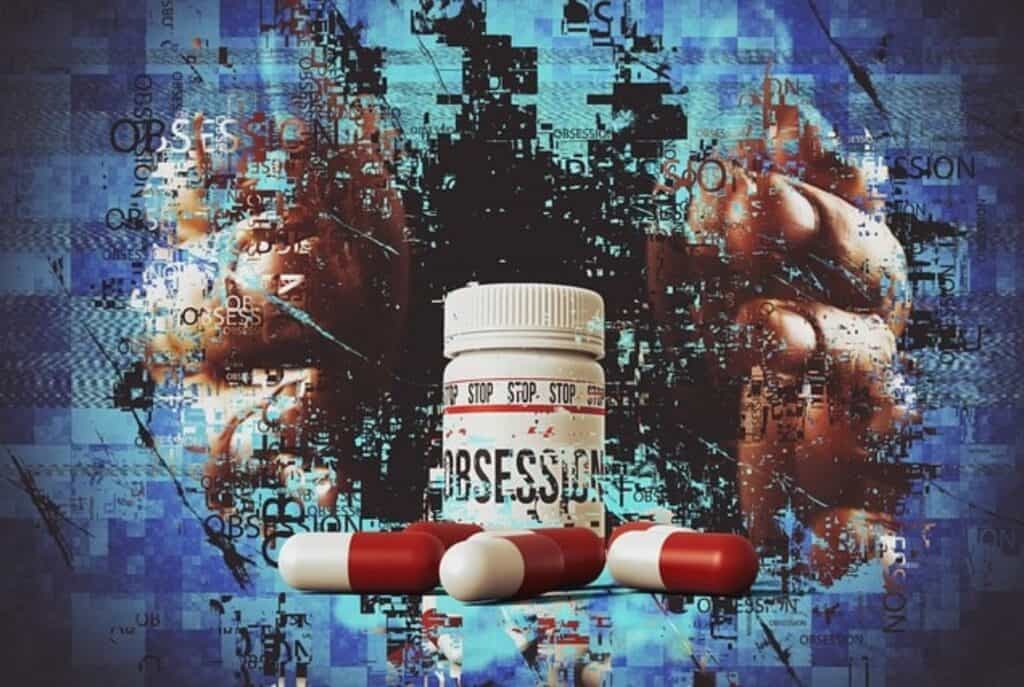Addiction is a chronic disease that involves compulsive seeking and taking of drugs or alcohol despite harmful consequences. Substance use disorder can significantly impact your health, relationships, and overall quality of life. It’s crucial to seek help from a mental health professional as soon as you develop signs of addiction.
Is Addiction a Disease?
Yes, addiction is a brain disease — it’s a chronic condition. The American Society of Addiction Medicine (ASAM) defines addiction as a chronic brain disorder. Addiction doesn’t happen from having a lack of willpower or as a result of making bad decisions. Your brain structure and chemistry change with repeated use of addictive substances.
Types of Substance Abuse
There are two main groups of addiction: substance use disorders (involving drugs, alcohol, and other addictive substances) and behavioral addictions (involving activities like gambling, shopping, and internet use). Substance abuse and drug misuse are common forms of addiction that can lead to alcohol use disorder or other substance use disorders.
What are the Factors that May Lead to Addiction?
Addiction is a complex condition with many contributing factors. Biological factors, psychological factors, environmental factors, and social and cultural factors all play a role. Family history of a family member with addiction struggles, brain chemistry, mental conditions, adverse childhood experiences, and personal experiences can all influence the development of addiction.
Environment
Environmental factors, such as stress, traumatic events, and access to drugs or alcohol, can also contribute to the development of addiction. Factors such as peer pressure, physical and sexual abuse, and early exposure to drugs can lead to substance use disorder and drug addiction.
Biological
Biological factors, such as genetics and brain chemistry, can increase a person’s risk of developing an addiction. Research shows that about half of a person’s risk for addiction is influenced by their genetic makeup. Addictive drugs and alcohol can alter the brain’s reward system, leading to changes in nerve cells and dopamine receptors.
Co-Occurring Mental Illness
Another factor that can contribute to an increased risk of developing a dependency on an addictive substance is co-occurring mental illnesses, such as bipolar, depression, and anxiety disorders. Individuals may turn to drugs or alcohol to treat the symptoms of these conditions.
Addressing both addiction and any underlying mental health disorder is crucial for effective treatment and long-term recovery.
Symptoms of Addiction
Common signs of substance use disorder include an inability to stop using drugs or alcohol, increased tolerance, intense focus on the addiction, lack of control, personal and health problems, and withdrawal symptoms. When an addiction develops, it can have a significant impact on all aspects of a person’s life, including relationships, work, and even financial stability. They may engage in risky behaviors when seeking drugs or begin spending money they can’t afford and develop legal problems related to their drug use.
How is Substance Use Disorder Diagnosed?
To diagnose substance use disorder, healthcare providers may conduct a physical exam, order blood and urine tests, and ask questions about patterns of drug use or problematic behaviors. They may refer the individual to a mental health professional or addiction medicine specialist for further evaluation and treatment recommendations.
Treatment Options for Drugs or Alcohol
Addiction treatment often involves a combination of approaches, such as medication, rehabilitation programs, therapy, and support groups. The goal is to help the individual manage their substance use disorder, address underlying mental issues, and develop healthy coping strategies to maintain long-term recovery. An effective treatment plan should be tailored to the individual’s specific needs and may involve collaboration between various healthcare professionals.
Addiction Medicine
Medications can be used to manage withdrawal symptoms, reduce cravings, and treat co-occurring mental disorders. For example, methadone and buprenorphine are commonly used to treat opioid addiction, while naltrexone can be used to treat alcohol use disorder and prevent relapse. Working with a qualified healthcare provider is essential to determine the most appropriate medication-assisted treatment options.
Behavioral Therapies for Addiction
Behavioral therapies, such as cognitive-behavioral therapy (CBT) and motivational interviewing, can help individuals with substance use disorders identify and change negative thought patterns and behaviors related to their addiction.
These therapies can also help develop coping skills, improve communication, and enhance motivation for change. Participating in individual or group therapy sessions with a therapist is a key component of many addiction treatment programs.
Preventing Addiction
While addiction cannot be completely prevented, there are steps individuals can take to reduce their risk, such as avoiding or limiting the use of addictive substances, managing stress, and seeking support for any mental illness. Addressing risk factors and developing healthy coping mechanisms can also help prevent the development of substance use disorders.
Early Intervention and Education
Early intervention and education about the risks of drug use and addiction are crucial for preventing substance abuse, especially among young people. According to research on young people and substance abuse from the National Institute on Drug Abuse, adolescent brains are still developing, making them more vulnerable to the effects of drugs and alcohol. Providing age-appropriate information and support can help reduce the likelihood of substance use disorders developing later in life.
Outlook and Prognosis For Drug Abuse
With effective treatment and ongoing support, many people are able to manage their substance use disorder and live fulfilling, healthy lives. However, addiction is a chronic disease, and relapse is common. Continued treatment, a strong support system, and a commitment to recovery are essential for long-term success. Regularly attending support groups, such as Alcoholics Anonymous or Narcotics Anonymous, can provide ongoing encouragement and accountability.
Supporting a Loved One with a Drug Addiction
Helping a loved one with addiction can be challenging, but it’s important to approach the situation with empathy, patience, and a willingness to provide support. Encouraging the individual to seek treatment, offering to help them access resources, and taking care of their mental health are all important steps. Remember that recovery is a process, and setbacks may occur. Providing consistent, non-judgmental support can make a significant difference in your loved one’s journey towards overcoming addiction.
Getting Help for Addiction
Substance use disorder is a complex and multifaceted condition, but with the right support and treatment, recovery is possible. By understanding the causes, symptoms, and treatment approaches, individuals and their family members can take steps to overcome addiction and reclaim their lives. If you or someone you know is struggling with drug addiction or alcohol abuse, don’t hesitate to reach out for help. With dedication and the proper resources, a healthier, addiction-free life is within reach.
At our Massachusetts rehab center, we provide individualized treatment plans to help individuals overcome substance use disorder and achieve long-term sobriety. Reach out to us via our secure, online form or by calling us at (781) 570-5781 to discuss treatment options and find out how we can help you overcome your addiction struggles.





